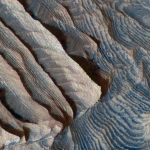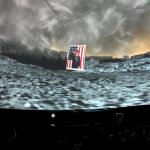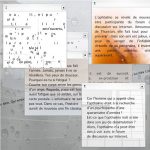electropoetics
Appealing to Your Better Judgement: A Call for Database Criticism

On the database itself as a cultural and textual artifact, a site where reading and interpretation combine with quantitative methods.
Something there badly not wrong: the life and death of literary form in databases

Returning to his 2010 essay, “Electronic Literature as World Literature,” Tabbi extends those arguments in light of community built scholarly databases that have since emerged and in contrast to an uncritical tracking of “views, citations, downloads and occasional shared themes” (not to mention an increased precarity of authorship, where one’s scholarly work is basically given away).
For digital practices to be literary, Tabbi argues, our selections need to circulate within various institutional, academic, curatorial, and cultural structures – each of which is devising its own set of relations to the digital. This essay aims to initiate those ongoing conversations and evaluations in the field of born digital, electronic literature. In so doing, Tabbi suggests how acts of close reading can bring scholars into closer contact with one another and also activate the databases where e-lit archives are presently stored, read, curated, and mined for verbal and perspectival patterns. (Which have been described, in broad outline as a kind of distant reading.)
Pitching the Poem-essay: Subversive Argument in the Work of Charles Bernstein

Circularity, performativity, authorial intervention, digressions, interruptions, collage, segmentation, prolific examples, line breaks and humor: Hazel Smith brings each of these approaches and stances to bear on Charles Bernstein's poetic essays and essayistic poetry. In the spirit of which, Smith presents her own essay in parallel sections. The main column advances her critical argument, while the second discontinuous column presents a "Deep Text" generated by Roger Dean, who applied the computer platform Python to word sequences from Smith's first column.
image: Charles Bernstein
The Digital Subject: From Narrative Identity to Poetic Identity?

Bouchardon and Mayer in this essay question the narrative model of personal identity – the idea of the self as a story – in light of contemporary forms of electronic literature.
Data-Realism: Reading and Writing Datafied Text

Pold and Erslev explore third-wave electronic literature -- a practice situated in ¨social media networks, apps, mobile and touchscreen devices, and Web API services” (Flores). At the next conceptual level, however, literary practices of this kind unavoidably take part in representing and reconstructing the metainterface - a space of data collection, standardization, commodification and redistribution that, for better or worse, is our context for a contemporary data realism.